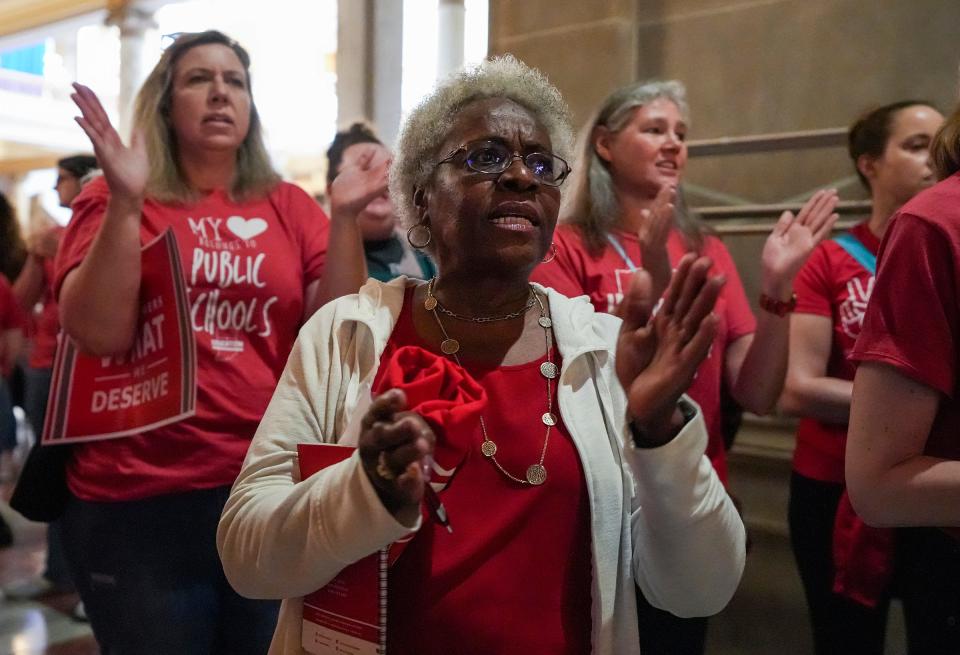Our college-educated youth are fleeing Indiana. Why can't we keep our best and brightest?
How many Hoosier graduates will leave the state after celebratory cake and punch? For decades, Indiana has acknowledged a brain drain, a deficit of skilled talent. Our tax dollars pay for state institutions, graduates move away, and skilled jobs stay unfilled. A shortage of educated workers foretells problems for Indiana’s long-term future. Indiana Chamber President and CEO Kevin Bringer told The Statehouse File: “We hear it from employers and see it in virtually every education and workforce statistic. It’s that Indiana has a massively leaking talent pipeline,”
In the early 1980s, my Purdue graduate father served on the Brain Drain Commission. Ironically for him, my brother and I, graduates of tax-supported state universities, hightailed it to the South after graduation, a migration popular with Baby Boomers. At Ball State in the late ‘70s, my university transported students to Atlanta for job interviews. The South offered better pay and benefits.
“It wasn’t until 1999 that the Human 30 Percent Project done by Indiana’s Fiscal Policy Institute showed the state retaining nearly 30 percent fewer than the national average,” noted Purdue Perspective. As a result, Purdue partnered with Lilly Foundation on the Opportunity for Indiana program to place interns with Indiana businesses, foster start-up growth and train entrepreneurs.
Student loans in Indiana: What to know about when payments resume, debt relief options

University-business partnerships netted some success, yet we still lack skilled workers. As a result, state universities began offering more scholarships to out-of-state students paying more tuition fees on top of awards. But, like fuel on a fire, Indiana also graduated fewer students, with enrollment coverage at Indiana universities dipping to 79%, a 4.5% drop from 2022.
The reasons my brother and I headed south differed from today’s graduates. (We returned here to raise our families.) So why do today’s graduates leave? Many young adults believe we have poor primary schools, pollution and draconian social policies. The Los Angeles Times reported young professionals fleeing states with antiabortion policies — Indiana, Texas, Utah and Florida.
Indiana politics: Holcomb signs bill banning transgender surgeries, puberty blockers for minors
Our efforts in retention must start with increased funding for public schools from preschool to grade 12 and funding and supporting our state universities. Indiana has many excellent schools, but we need more than 1,700 trained teachers in our 342 school districts. Our General Assembly should keep its collective eyes back on reading, writing and arithmetic and stop focusing on school bathrooms and whether children should read “Huck Finn.” Quality schools, from K-12 to universities, are what every parent wants.
The General Assembly must prioritize paying trained teachers a living wage because local referendums may not cut it in a state that doesn’t want local taxes. But, as the daughter of teachers, I know good teachers want to help students learn and become adult contributors to society. But, educators must make enough to support their families. And we need policies that expand scholarships to in-state students that encourage Hoosier students to stay here for college and, hopefully, for a lifetime.
Banned books: 'I hope it does have a chilling effect': Indiana Senate passes bill targeting 'bad books'
Michael Hicks, Center for Business and Economic Research at Ball State University, put today’s issues in perspective: “Over the last three decades, people are moving with an eye on local public services. Good schools are most important; the absence of crime and blight, and less pollution that reduces lifespan, are critical predictors of where people move. Indiana has a mixed record on these. We have some excellent schools, but that is not the norm. We do poorly on the national rankings of top schools. Our crime rate is worse than in New York, and our murder rate is almost double that of the Empire State. We are among the most polluted state or two, as shown in our mortality data.”
The long session of the General Assembly ends Saturday, but we as citizens must keep after our legislators to do right by our children and fund education for the long haul. Our legislature passed a $43 billion education budget, which many believe is insufficient. Fiddling while Rome burns, the legislature also discussed and passed socially conservative bills that progressives oppose.
Leaving Indiana for progressive states: 'Will the physicians leave?': Many fear abortion ban will lead to medical brain drain
“Most mobile, educated families treasure the fundamentals of great schools, safe neighborhoods, clean air and water,” Hicks said. “All of these are policy choices. I’m hopeful that more Hoosier policymakers understand this. If they do, the coming decades could be very good for Indiana. If they do not, we’ll be a smaller, poorer and less important state,”
What can a non-policymaker do? “The most important thing any individual can do is to put pressure on elected officials to face the problem honestly, and to devote time, money and passion to remediating the factors that push young people away,” said Hicks.
As Hoosier citizens, we can also exercise our rights by speaking out and exercising our franchise to vote in every election for policymakers who support education and do not support reckless laws that most Americans oppose. As a senior long past my marching days, my weapons are my voice and vote.
Amy McVay Abbott is a journalist and author who lives in southern Indiana.
This article originally appeared on Indianapolis Star: Indiana's best, brightest flee state to live in more progressive areas

